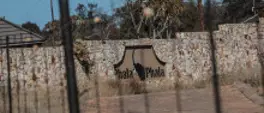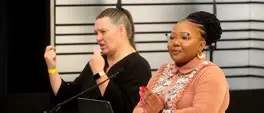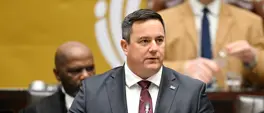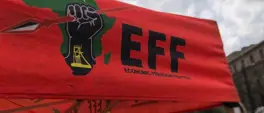CAMAGWINI MAVOVANA | The shutdown is not a protest - It is self-defence
Guest contributor
19 November 2025 | 10:53Women for Change founder Sabrina Walter put it plainly: “We are not asking for anything extraordinary. We are asking for the right to stay alive.”
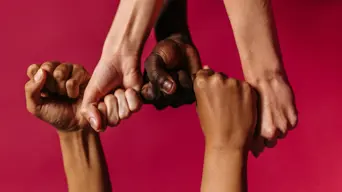
Picture: Pexels
Every year, South Africa enters the 16 Days of Activism Against Gender-Based Violence with slogans, speeches, and promises.
This year, the campaign officially begins on the 25th of November 2025 and runs until the 10th of December 2025. But for millions of women, children and LGBTQIA+ persons, activism cannot be confined to 16 days; not when the other 349 days are marked by fear, mourning, and survival - and not when the festive season, which coincides with the 16 Days, historically becomes one of the most dangerous periods of the year for women.
That is why, on 21 November, just days before the world enters this annual campaign, women across South Africa will shut the country down.
Not for symbolism. Not for optics. But because we refuse to begin another 16 Days with nothing but grief and names to bury, writes Camagwini Mavovana.
A Country Devastated by Normalised Violence:
South Africa records some of the highest femicide and sexual assault rates on earth. A woman is murdered every 2.5 hours. Children are raped daily.
Conviction rates remain embarrassinglylow. In 2023 alone, just over a single festive quarter, 10,516 rapes and 881 murders of women were recorded, a pattern the NRF confirms in its Festive-Season Gender-Based Violence in South Africa study (2025) intensifies during holidays, when policing thins out, shelters have fewer staff, and social conditions worsen.
There is nothing natural about this. There is nothing inevitable about this. There is simply a state that has normalised our deaths.
Women for Change founder Sabrina Walter put it plainly: “We are not asking for anything extraordinary. We are asking for the right to stay alive.”
That we must shut down the country to be heard speaks to what feminist scholar Dr Pumla Dineo Gqola has long argued: South African society has developed a language of rape, a set of beliefs so entrenched that women’s pain becomes negotiable, debatable, and dismissible. Gqola warns that rape is not just an act, it is a culture sustained by the stories we accept, the lies we repeat, and the citizenship we deny to women whose bodies have been violated.
This shutdown is an interruption of that language. A refusal to respond in the grammar of silence.
If anyone still doubts why the shutdown matters, they need only recall the leaked WhatsApp group chat that recently made its rounds online. A group of men, one employed by a major corporation, casually strategised about flying women out for sex, targeting women “born in 2000,” and requesting “four UJ students” like commodities on a shelf. They traded images of unsuspecting female colleagues like poker chips. They joked. They plotted. They felt entitled.
And when one of them faced workplace consequences, the loudest outcries came not in defence of the women violated but in defence of the men disciplined, from the usual cohort of misogynists who insist that “boys will be boys” and that women should stop overreacting.
This incident didn’t disgust the country because it was unusual; it disgusted us because it was predictable.
It revealed a truth Gqola has insisted on for years: sexual violence is not a deviation from South African masculinity; it is embedded in how many boys are socialised, how many men bond, and how many institutions fail to hold them accountable.
The shock was not that the chat existed.
The shock was that anyone was still shocked.
Women for Change chose 21 November strategically. Global leaders will descend on Johannesburg to discuss growth and prosperity, yet what prosperity can a nation celebrate when half its population must survive by shrinking itself?
Professor Andrea Cornwall, writing on women’s empowerment, warns that governments often prefer the aesthetics of gender equality, glossy statements, progressive laws, colourful campaigns, without engaging in the deeper transformation of power relations that would actually keep women alive. Too many policies focus on what women can do for development, not what development must do for women.
This shutdown flips that script. It forces the state to confront not its gender optics, but its gender failures. It demands that GBVF be declared a national disaster because it is one.
The National Research Foundation’s latest study (2025) confirms what women already know: if we do not act before December, we will enter another season unprotected.
The NRF notes that policing alone cannot resolve gender-based violence. It requires multisectoral action, community involvement, and social transformation, themes Cornwall emphasises as essential to any empowerment journey. Power shifts only when society examines itself, not just its criminals.
At noon on 21 November, women, children, and LGBTQI+ persons will lie down for 15 minutes in silence. It is not a performance. It is a warning.
The shutdown calls for:
● No paid or unpaid labour
● No spending
● A 15-minute national standstill
● Black attire in mourning
● Purple profile pictures in solidarity
● Collective presence in public spaces
More than 1.75 million people have signed the call to declare GBVF a national disaster. And now, cities across the country are joining, including East London, which will march from City Hall to the Baby Lee Jegels Recreational Park, named after the boxing champion murdered in 2019 by her police officer boyfriend.
The shutdown is not about inconvenience. It is about survival.
It is about remindinga government that the safety of women and children is not a side project, a special programme, or a committee agenda item. It is the foundation of a functioning society.
As we enter another 16 Days of Activism, women refuse to recite statistics for leaders who do nothing with them.
On 21 November, we shut down the country so that the 16 Days of Activism begin not with platitudes, but with proof that women are mobilising themselves, because the state refuses to.
It is about reclaiming the collective power Cornwall describes, the “power within,” “power with,” and “power to” reshape the world. It is about echoing Gqola’s truth: that the nightmare of rape culture will not dissolve through silence, politeness, or waiting. On 21 November, women will silence the nation. Because the nation’s silence has been killing us. And we, the living, the grieving, the furious, the unafraid, will not be silent anymore.
Get the whole picture 💡
Take a look at the topic timeline for all related articles.



